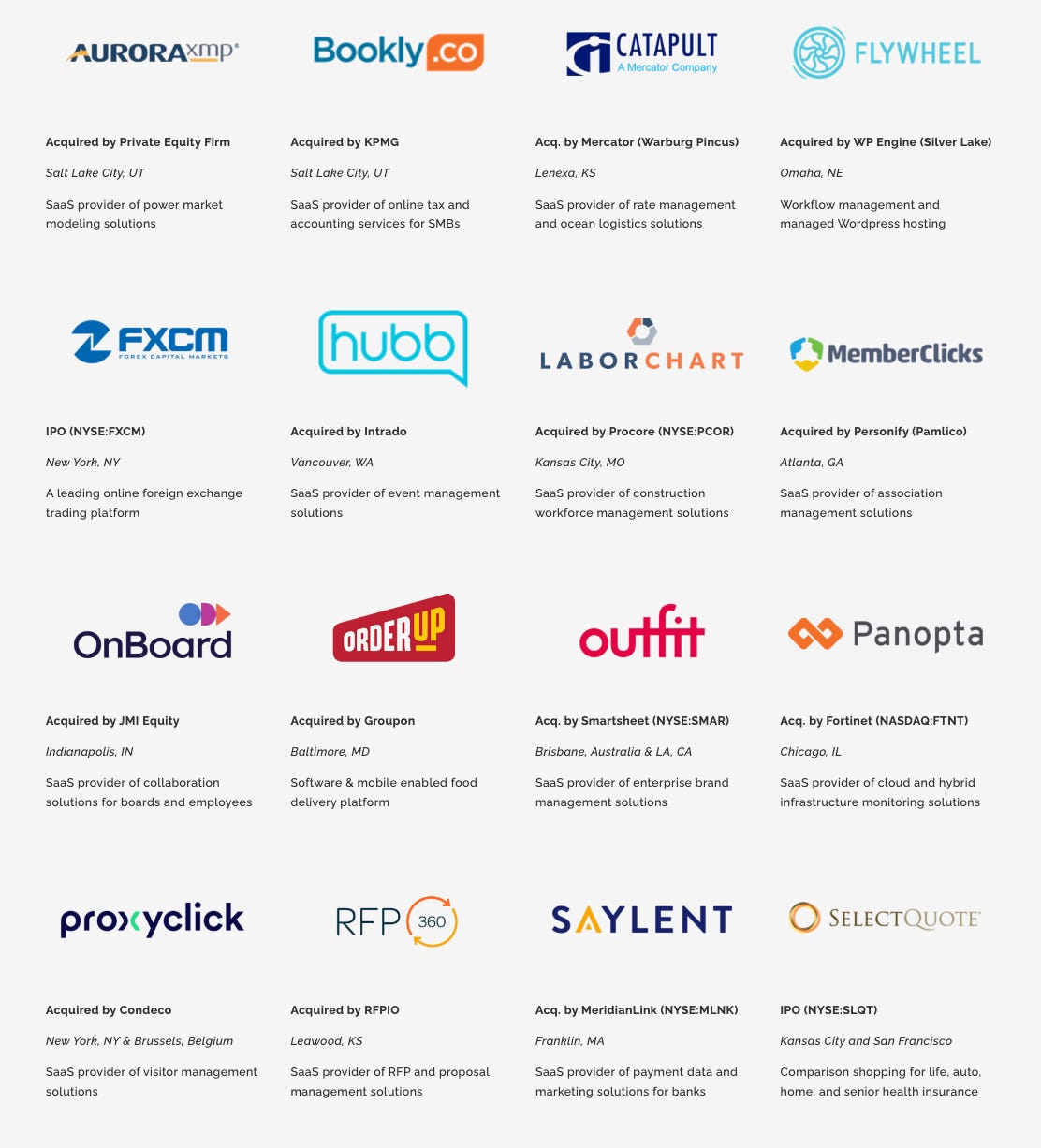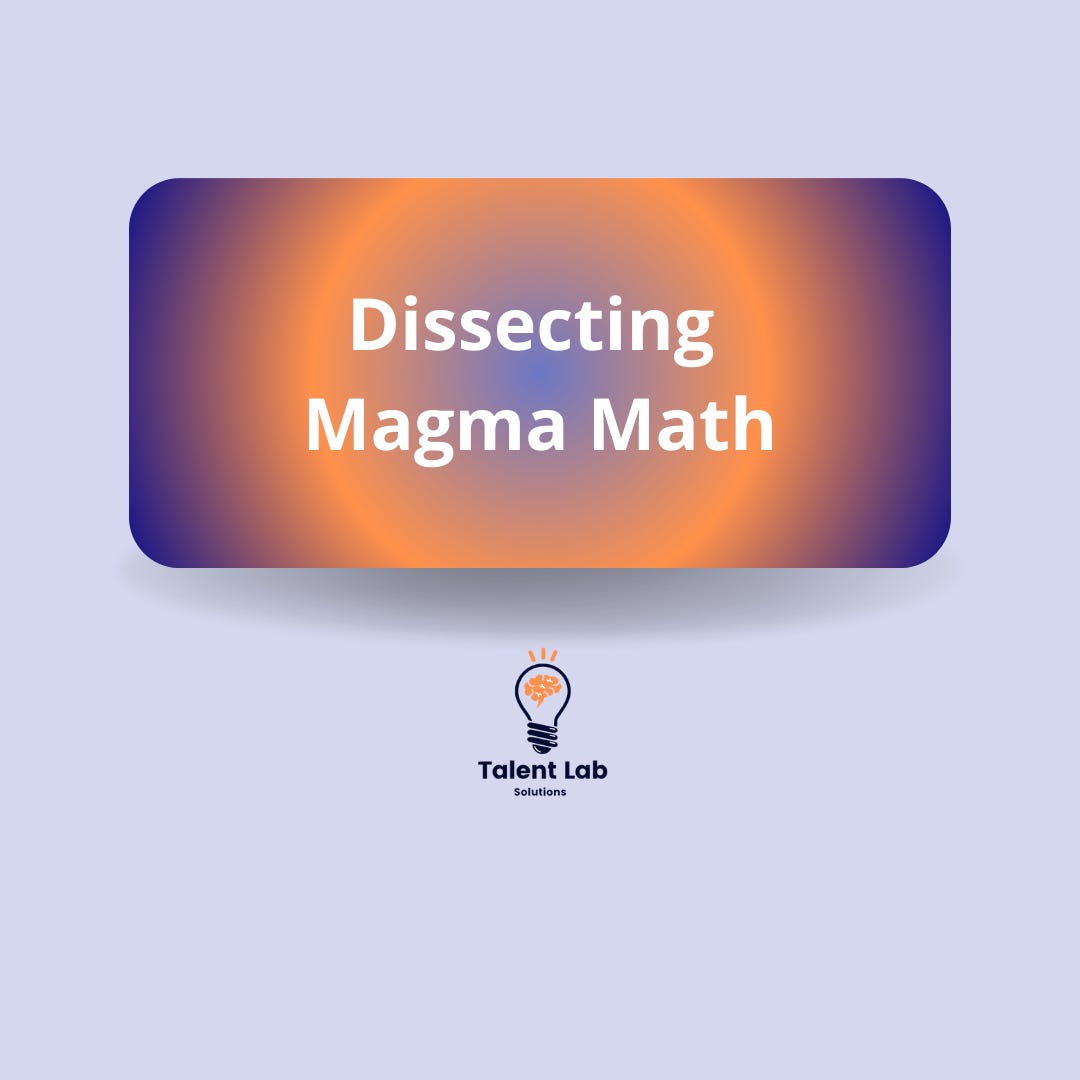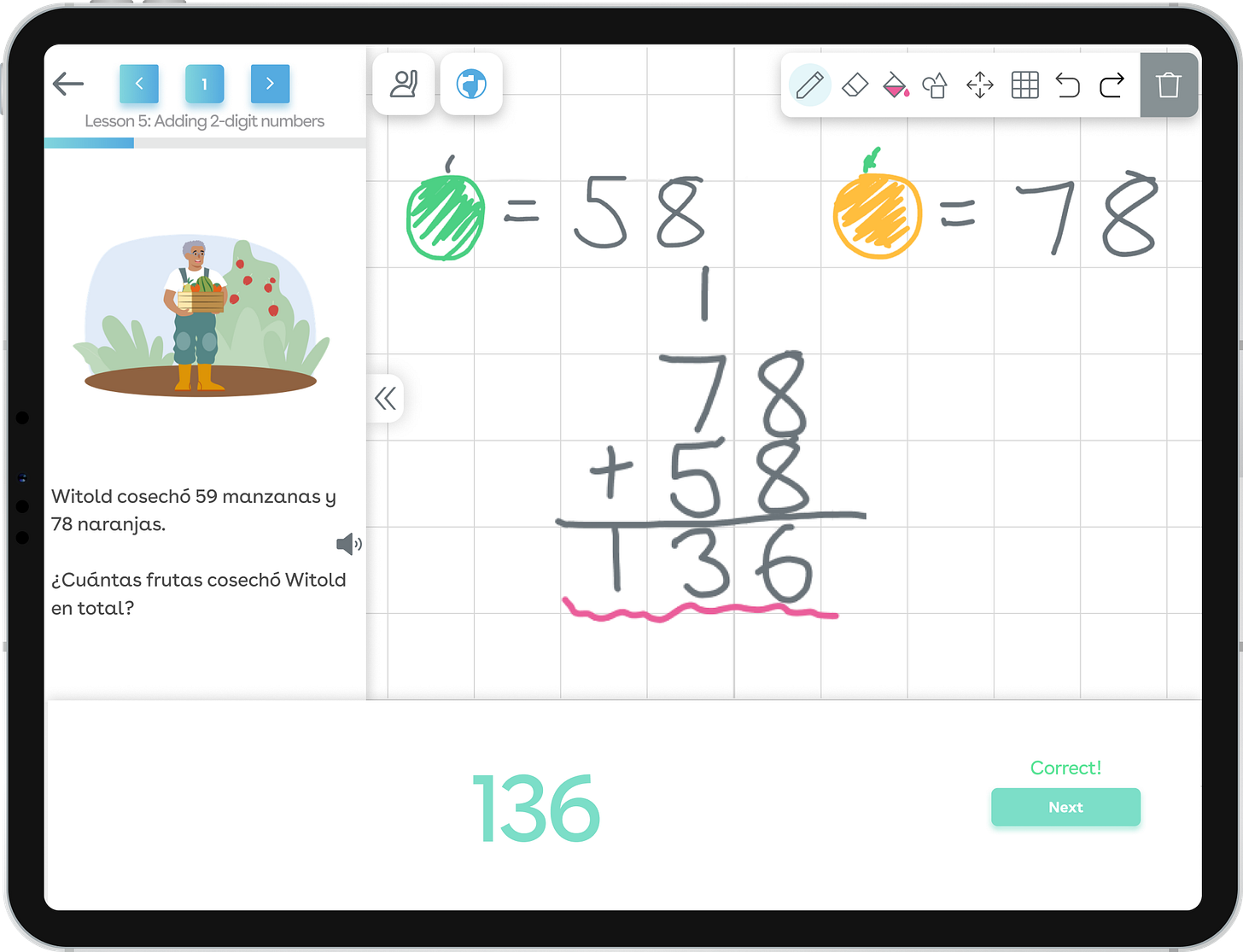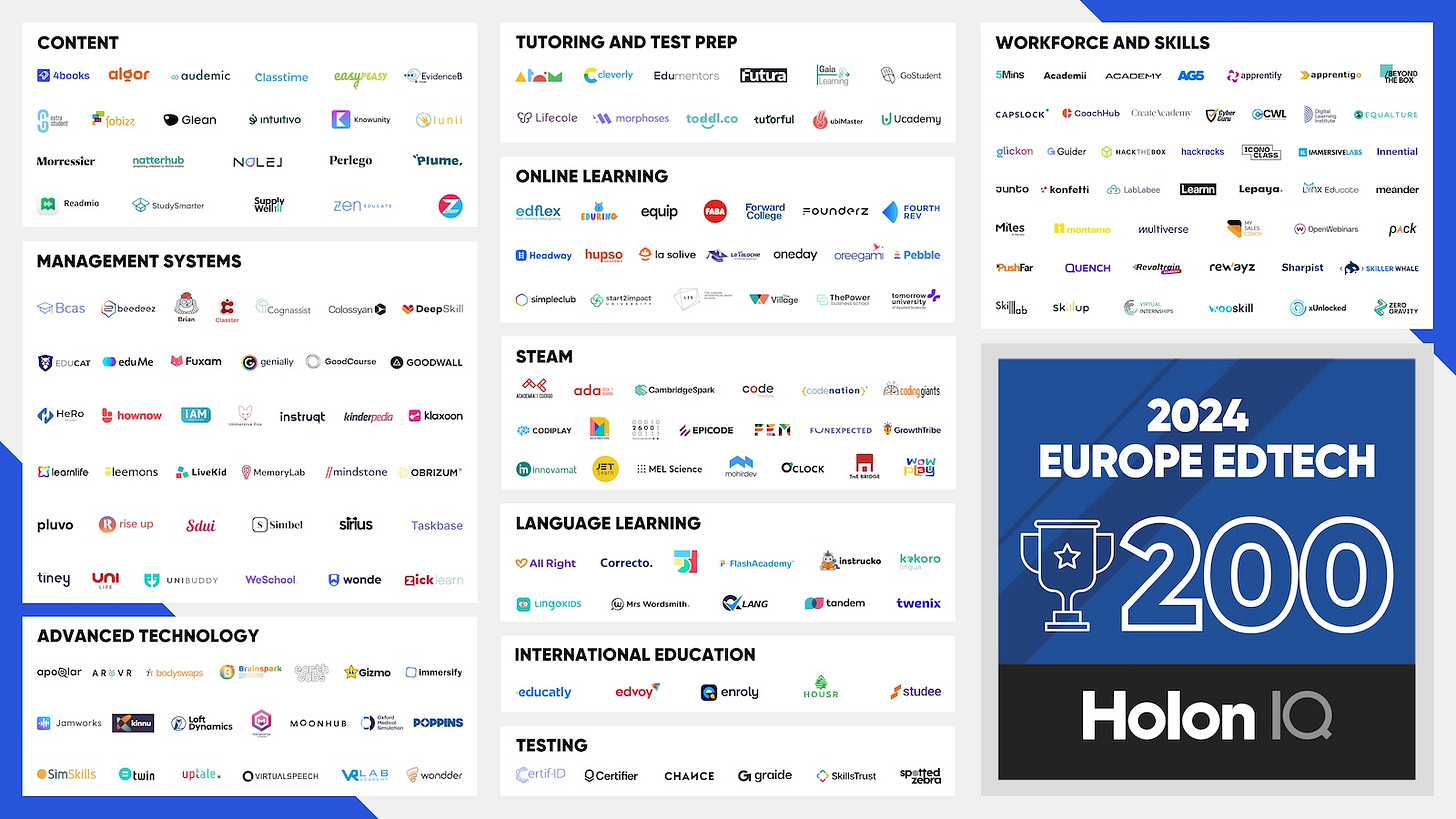One of our readers, the incredible Dan Meyer, asked us to do a deep dive into the Magma Math $40M Series A round that closed just two weeks ago. Last week we showed how there were some signs of life in the EdTech funding world, but Magma Math, based in Sweden, might be the biggest indicator of that.
Magma Math is a “platform that enables students to show their thinking and helps teachers enable good math pedagogy, whilst saving time.” I work for Amplify, whose instructional platform–Desmos Classroom–has a nearly identical value proposition (except Desmos is also free to use).
Okay, the competitor bashing aside, Magma Math is exciting because it is an objectively good product, and because they are a SaaS startup that barely announced AI in their funding announcement. “AI” was mentioned once, vs. “pedagogy” being mentioned three times–compare that to MagicSchool AI, which mentioned “AI” thirteen times (excluding all of the times it was included in their name) and never mentioned the words “pedagogy” or “teaching.” My NYU professor, Scott Galloway, says that you can tell a lot from a company by what words they recycle into oblivion in their press releases.
The European Advantage
What’s the big deal? I think part of this is emblematic of a new-ish development: Europe is pumping out some objectively good EdTech startups. Innovamat, Learnwise, Magma Math, etc. Philipp Legner founded Mathigon in the UK (which Amplify acquired).
Europe’s EdTech ecosystem is doing well. I’m pretty far removed from the VC scene, but we do get to meet a lot of startup founders, and generally, Europe has anecdotally taken the lead. Many of the most exciting startups we’re seeing are from there.
But the bigger part of it is that European startups likely see the US market as rife for disruption. I think this is interrelated with why Europe’s EdTech startups seem more interesting, but the US’ educational landscape is dominated by an oligopoly of entrenched players who hoard school and district contracts: The Big Three (HMH, McGraw Hill, Pearson). Combined, these players likely have nearly 50% of the curriculum market, according to Bay View Analytics.
To these companies, technological innovation entails digitizing a text book. These incumbents, as well as the long-tail procurement cycles of districts, make it hard for domestic startups to challenge them. And it’s why some of these giants in the domestic market do incredibly poorly abroad.
But a European startup? They’re bright-eyed about their prospects. They have a better product than anything from the Big Three, and they’ve been validated in Germany, or Switzerland, or Spain. They’re ready for the big time. Total expenditure in the US on public education is nearly $900Bn. Think about the SOM on that! That is, until rubber meets the road.
Magma Math’s calculus
Magma Math is a supplemental math program that is hoping to infiltrate the curriculum market. They’ve had a US-based sales team for at least two years now, and have closed a few contracts with a handful of schools and districts. In some RFPs (like Conroe ISD), they’ve positioned themselves as a teaching software, not a curriculum.
Their lead investor is Five Elms Capital, which is a SaaS VC that knows the SaaS model inside and out. A lot of their startups are typically in FP&O, and they’re not typically associated with EdTech, except for Apptegy, which they invested in back in 2017.

Apptegy obviously unlocks some synergy for a VC platform strategy for cross-selling. They’ll have some expertise there. But they’ll have a ton of expertise in the SaaS sales motion, and considering that Magma Math won’t be competing in core curriculum adoptions, maybe there’s something to this. Heck, maybe they can even use Five Elms’ portfolio company, RFP360, to help with the bids process (Cengage uses RFP360…which is probably not a great endorsement).
Desmos has been enabling teachers with the same tools as Magma Math for years. And yet, it still feels new, because the US educational landscape moves slowly, especially because of the subpar quality of our incumbent players (the Big Three, but also Savvas, Cengage, etc.).






